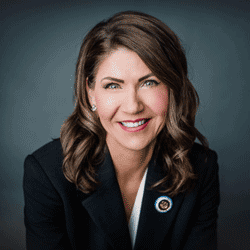

Thune Introduces Bill to Bolster Forestry, Seasonal Workforce
Visa set-aside will address tree planting backlog and carbon sinks, while reducing demand on oversubscribed H-2B program
WASHINGTON — U.S. Sen. John Thune (R-S.D.) today introduced a bill to temporarily increase the availability of H-2B visas for the purpose of restoring American forests. The bill would establish an uncapped, but temporary, carve-out of the H-2B program to permit a surge in workers to address a multi-year backlog in forest management, including wildfire restoration, long-term timber supply, and carbon sinks.
“Healthy and resilient forests provide a host of environmental and economic benefits, but we’re losing valuable time to recover from wildfires and other disturbances,” said Thune. “Roughly 10,000 H-2B workers plant 85 percent of the trees planted annually in the United States, and they support over 1 million domestic jobs. We shouldn’t cap this workforce that underpins our forest health and forestry industry.
“The benefits of this bill extend far beyond wildfire and habitat restoration. New trees play a critical role in capturing carbon at a faster rate than older trees, and the responsible and sustainable development of that timber can reduce consumer costs and keep that carbon from being released in wildfires. My bill would also provide additional relief for the annual H-2B cap, which is a vital source of supplemental workers in South Dakota and a well-established, legal pathway for economic migration.”
“The Forest Resources Association applauds Senator Thune’s leadership and efforts in introducing his bill to make additional H-2B visas available for forestry employers,” said Deb Hawkinson, president of the Forest Resources Association. “Additional visas would help forest landowners increase the number of acres planted each year, ensuring healthy forests, improved carbon sequestration, and securing full-time jobs for future generations of Americans. Seasonal workers on H-2B visas have long supplemented the U.S. workforce replanting our forests. Millions of acres of forest and thousands of U.S. workers throughout the forest products supply chain depend on the critical seasonal tree planting performed by H-2B workers each year. Over the past decade, there has been a continual shortage of U.S. workers willing to fill these strenuous seasonal tree planting jobs, and the disruptions caused by the pandemic have made these labor shortages worse. The decreasing availability of H-2B visas is putting the health of our forests at risk.”
The new “H-2C” (conservation) program created by Thune’s bill would be nested within the H-2B program, but exempted from the annual cap of 66,000 visas, for a period of five years. This would simultaneously relieve demand from the oversubscribed H-2B program, which provides a vital, seasonal workforce during South Dakota’s peak tourism months and for construction and landscaping. H-2C activities would be limited to orchard work and seed collection, tree planting, nursery care, forest and vegetation management, wildfire mitigation and brush clearing, timber stand improvement, and other activities with a direct forest health or conservation nexus, such as fish and wildlife habitat or watershed protection.
According to the Forestry Resources Association, there is an approximately three-to-five year backlog in replanting trees to restore forests that have been damaged by wildfire, hurricanes, and delays caused by the pandemic throughout the United States. Nearly 10,000 H-2B forestry workers plant approximately 1.6 billion trees each year, contributing to 85 percent of trees planted annually in the United States (8-9 percent of this acreage is on federal land). These seasonal jobs represent only 1 percent of the total forestry sector, supporting 1.1 million domestic, higher-skilled and higher-paying jobs in the forestry, wood, and paper industries. H-2B workers mostly plant trees following disturbances such as fires, hurricanes, and timber harvests. Tree planting jobs have proven difficult to fill using domestic labor because the jobs are seasonal and change locations frequently, often traveling from state to state.
Under Thune’s bill, H-2C visas could not be used for jobs related to landscaping, recreation, or tourism, although the program would reduce demand for the annual H-2B cap via the exemption. Participating H-2C employers would have to follow the existing requirements for H-2B.
Thune raised the issue of labor shortages affecting the forestry industry in a Senate Agriculture Committee hearing entitled, “Federal, State, and Private Forestlands: Opportunities for Addressing Climate Change.” (Thune question at 1:50:00)
Thune’s H-2C proposal would also directly support the global One Trillion Trees initiative. In October 2020, President Trump signed an executive order establishing the One Trillion Trees Interagency Council to coordinate the United States’ contribution to the effort. Additionally, Secretary of Agriculture Tom Vilsack highlighted the need to increase the rate of tree replanting and leverage American forests as a carbon solution, which will require an increase in the current workforce, in his Climate-Smart Agriculture and Forestry Strategy: 90-Day Progress Report.
On April 20, 2021, the Department of Homeland Security announced it would make an additional 22,000 H-2B visas available, pursuant to Section 105 of the Consolidated Appropriations Act of 2021, which Congress passed to authorize the Secretary of Homeland Security and Secretary of Labor to provide supplemental H-2B visas for fiscal year 2021. In accordance with Executive Order 14010 on “Creating a Comprehensive Regional Framework to Address the Causes of Migration, to Manage Migration Throughout North and Central America, and to Provide Safe and Orderly Processing of Asylum Seekers at the United States Border,” 6,000 of these visas were reserved for nationals of the Northern Triangle countries of Honduras, El Salvador, and Guatemala.
On March 1, 2021, Thune reintroduced the Prioritizing Help to Businesses Act, legislation to allocate additional H-2B visas to states with the lowest unemployment rates, such as South Dakota.
###






